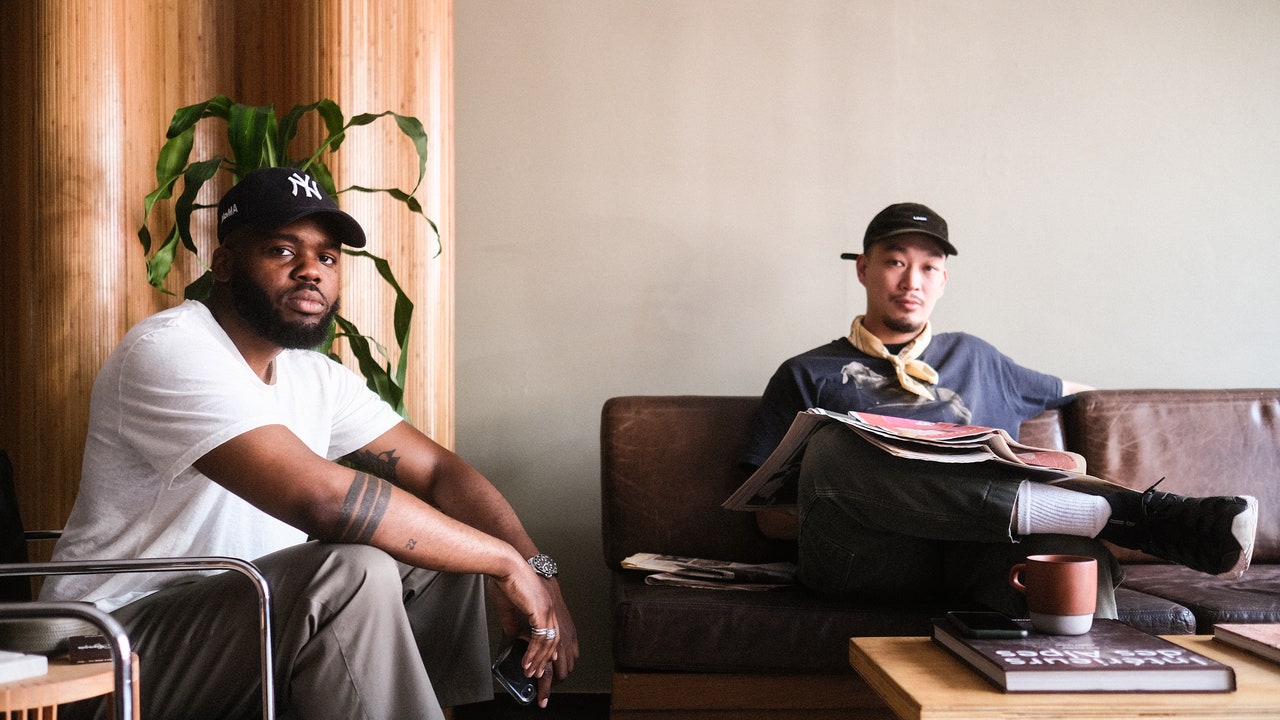Four years ago, Jared Blake (one half of Lichen) purchased a set of Eames Shell chairs in elephant grey for his Brooklyn apartment. His father, who he had plugged for his input, insisted that he add a yellow version to the lot. A year later, buyer’s remorse drove that lone yellow chair onto Craigslist, and within hours Ed Be (the second half of Lichen) was in Blake’s inbox requesting a viewing. It was a millennial meet cute (both men are in their early 30s). When Be picked up the chair, he and Blake fell naturally into conversation, discovering that they shared many interests in the realms of music, design, and fashion; they felt an additional kinship as men of color.
The pair officially became business partners in 2017, selling vintage furniture and objects online under the name Lichen NYC while maintaining their full-time jobs. They sourced all over—Craigslist, friends, friends of friends, and auction, mostly. With Instagram as their only marketing avenue, Be and Blake made sure everything they purchased was presented perfectly. Blake has a background in e-commerce, having worked at a creative agency in the city and the menswear brand Jack Threads. His digital expertise lent itself well to building their brand identity. Meanwhile, Be’s experience working in hospitality (he managed the former Union Square restaurant Republic) led him to suggest they transition to brick and mortar. The pair work this way, balancing each other and contributing complementary perspectives. “We both brought different things to the table—same mission, but different routes,” explains Blake.
A couple of Lichen offerings
They visited their first space in 2019, when Blake first went full-time with Lichen (Be went full-time early this year). The former deli that became their store was found, of course, on Craigslist (it’s an addiction). The East Williamsburg building was family-owned and their new landlords were incredibly supportive of their endeavor, offering them low enough rent that they were able to make the transition to a space three times the size in under a year. The history of that first location influenced the ambience in the store. To Blake and Be, it felt dishonest to reach for rarified ideals in a space that formerly served up mustard and meat. A respect for the economic makeup of their neighborhood also influenced pricing. “It’s really hard to move into an area and sell things you know the people who have lived here the longest can’t afford,” says Blake.
Lichen’s new location, which they moved into in the midst of the pandemic, is only eight blocks away from the first, and carries over the same inviting energy that existed in the original store. They interact daily with their neighbors (masks on, of course), frequenting the tailor across the street and the restaurants next door, careful to contribute to the historically Puerto Rican neighborhood they are now part of. Rise Radio is down the street, Oko Farms around the corner (a collaboration with the woman-run organic farm is in the works), and popular lunch spots Win Son and Champs Diner are only a few blocks away. “It’s a commune almost,” says Blake as he discusses the relationships that have blossomed in this neighborhood.
